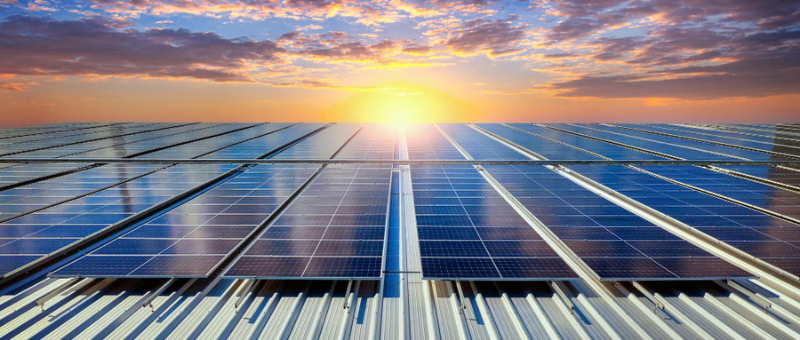The Impact of Government Policies on Solar Panel Price in India
As India rapidly progresses towards becoming a global leader in renewable energy, the solar industry plays a crucial role in this transformation. One of the primary factors influencing the adoption of solar energy is the cost of solar panels. Understanding the relationship between government policies and solar panel price in India can provide valuable insights for both consumers and industry stakeholders.
Government Incentives and Subsidies
The Indian government has implemented various incentives and subsidies to promote the adoption of solar energy. These incentives directly affect the solar panel price in India by reducing the initial cost burden for consumers. Programs like the Grid Connected Rooftop Solar Scheme and the KUSUM Scheme offer financial assistance and subsidies to residential and commercial users, which significantly lowers the upfront costs of solar panel installations.
Example: The Ministry of New and Renewable Energy (MNRE) provides a subsidy of up to 40% on the cost of solar panel systems for residential users. This financial aid reduces the solar panel price in India for end-users and encourages more people to consider solar energy as a viable option.
Import Duties and Taxes
Government policies regarding import duties and taxes also impact the solar panel price in India. Historically, India has relied on importing solar panels and components from countries like China. Changes in import duties can influence the overall cost of solar panels.
Example: In recent years, the Indian government has increased import duties on solar panels to promote domestic manufacturing. While this policy aims to support local manufacturers and reduce dependency on imports, it can lead to a temporary increase in the solar panel price in India as the market adjusts.
National Solar Mission
The National Solar Mission, part of India’s National Action Plan on Climate Change, sets ambitious targets for solar energy deployment. The mission’s objectives include increasing the installed solar capacity and reducing the cost of solar energy. By driving large-scale solar projects and encouraging technological advancements, the National Solar Mission influences the solar panel price in India by creating economies of scale and fostering innovation.
Example: The mission aims to increase the installed solar capacity to 100 GW by 2022. Achieving such goals requires substantial investments and advancements in technology, which can lead to cost reductions in solar panels over time.
Research and Development Support
Government support for research and development (R&D) in solar technology also plays a significant role in influencing the solar panel price in India. By funding R&D initiatives, the government encourages the development of more efficient and cost-effective solar technologies. Advances in technology can lead to reductions in production costs, ultimately lowering the solar panel price in India.
Example: The Solar Energy Corporation of India (SECI) and other government bodies provide grants and support for innovative solar technologies. These initiatives help improve the efficiency of solar panels and reduce their production costs.
State-Level Policies and Initiatives
In addition to national policies, state governments in India have implemented their own policies and incentives to promote solar energy. These state-level initiatives can further influence the solar panel price in India by providing additional financial support or offering tax benefits.
Example: States like Gujarat and Rajasthan have introduced policies to encourage solar installations, such as additional subsidies and tax exemptions. These state-level measures complement national policies and contribute to reducing the overall solar panel price in India.
Grid Infrastructure and Integration Policies
The development of grid infrastructure and policies related to grid integration also impact the solar panel price in India. Effective grid integration ensures that solar energy can be efficiently transmitted and utilized, which supports the overall economics of solar power projects. Investments in grid infrastructure can help stabilize the solar panel price in India by improving the reliability and efficiency of solar energy systems.
Example: The government’s focus on improving grid connectivity and implementing smart grid technologies helps integrate solar power into the national grid, enhancing the viability and cost-effectiveness of solar energy.
Future Prospects and Policy Directions
Looking ahead, future government policies and initiatives will continue to shape the solar panel price in India. The government’s commitment to achieving renewable energy targets and promoting sustainable development will drive further advancements in solar technology and market dynamics.
Example: Upcoming policies aimed at reducing carbon emissions and enhancing energy efficiency may include new incentives or regulatory measures that influence the solar panel price in India, making solar energy even more accessible to a broader audience.
Conclusion
Government policies play a pivotal role in shaping the solar panel price in India. Through incentives, subsidies, import duties, and support for research and development, the government influences the cost of solar panels and promotes the adoption of solar energy. As India continues to invest in renewable energy and set ambitious targets, the evolving policy landscape will play a key role in making solar energy more affordable and accessible for all.
By staying informed about these policy changes, consumers and businesses can better navigate the solar market and make informed decisions about investing in solar energy. As the industry evolves, the continued support and strategic policies will be crucial in driving down costs and accelerating the transition to a sustainable energy future.
FAQs
What is the 1 kW Solar Panel Price in India?
The 1 kW solar panel price in India typically ranges between ₹40,000 to ₹60,000. This price can vary based on factors such as the quality of the panels, the manufacturer, and the inclusion of additional components like inverters and mounting systems. Government subsidies and incentives can also influence the final cost for consumers. It’s advisable to compare quotes from different suppliers and check for any available financial assistance to get the best value for your investment.
What is the Current 3kW Solar Panel Price in India?
The price of a 3kW solar panel system in India typically ranges between ₹1,50,000 and ₹2,50,000. This cost can vary depending on factors such as the brand of the panels, the type of inverter used, and any additional components or installation services included. Government subsidies and incentives can also impact the final price, making solar energy more affordable for residential and commercial users. It’s recommended to get quotes from multiple suppliers and consider available subsidies to get the best deal on a 3kW solar panel system.
What is the Current 2 KW Solar Panel Price in India?
The price of a 2 KW solar panel system in India can vary based on several factors, including the brand, quality of components, and installation costs. As of now, the typical price range for a 2 KW solar panel system is between ₹70,000 and ₹1,00,000. This estimate usually includes the cost of solar panels, inverters, mounting structures, and installation. However, it is important to check with local suppliers and installers for the most accurate and up-to-date pricing, as government incentives and subsidies may also impact the final cost.
What is the Current 100 W Solar Panel Price in India?
As of 2024, the price of a 100 W solar panel in India typically ranges between ₹3,000 to ₹5,000. This price can vary based on factors such as brand, efficiency, and additional features like warranties or mounting accessories. It’s always a good idea to compare different suppliers and check for any available subsidies or incentives to get the best deal on a 100 W solar panel.




